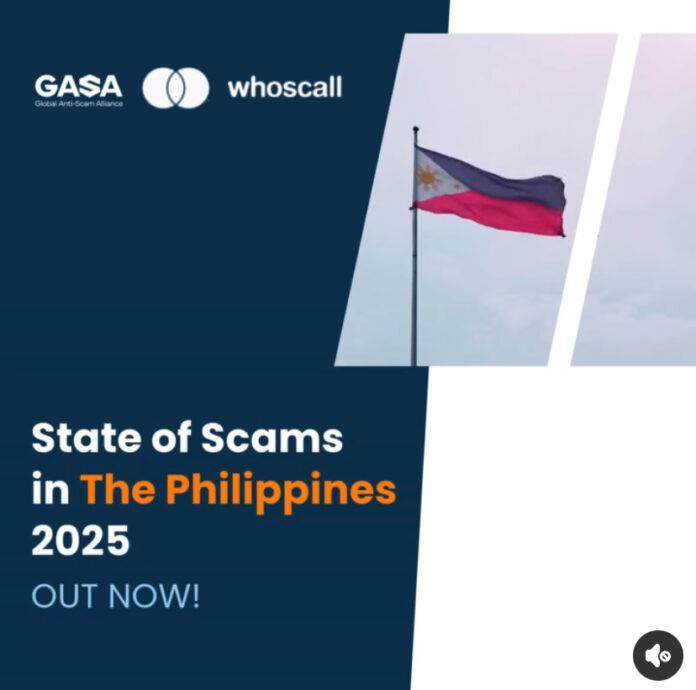More than three in four Filipino adults encountered a scam in the past year, with attempts striking at a pace of nearly one every two days, according to the 2025 Philippine State of Scam Report from the Global Anti-Scam Alliance (GASA) and Gogolook.
Based on a nationwide survey of 1,000 adults, the study shows scammers tightening their grip across digital channels—attacking with greater frequency and sophistication.
Gogolook Philippines General Manager Mel Migriño said the findings underscore the need for a unified national response. “Scammers continue to evolve, and it reinforces the need for everyone to work together in building safer digital spaces,” she said.
Seventy-seven percent of Filipinos encountered at least one scam, averaging 239 encounters per person annually. Eighteen percent reported being hit multiple times a day, while 17 percent experienced attempts several times a week. Actual victimization was alarmingly high: 65 percent were successfully scammed, with investment fraud topping losses at 65 percent of cases.
Victims cut across demographics—men and women were nearly evenly represented, and young Filipinos bore the heaviest exposure, led by Gen Z (46 percent). Even university graduates, who made up 62 percent of respondents, were far from immune.
Consumers expect institutions to play a protective role, with 33 percent saying commercial platforms should shoulder primary responsibility. But despite 74 percent of victims reporting incidents to payment providers, only 11 percent recovered any money. Emotional fallout was widespread, with 88 percent feeling anxious or distressed after being scammed.
The report’s release coincided with the launch of the GASA Philippines Chapter, bolstered by Gogolook and Whoscall. GASA APAC Director Brian Hanley warned that scams now threaten household stability, not just online safety. Migriño, now GASA PH Vice Chair, said coordinated action—powered by better tools, simpler reporting, and public awareness—is essential.
GASA’s 2025 report calls for stronger collaboration and a more resilient national framework to curb the escalating fraud epidemic.







